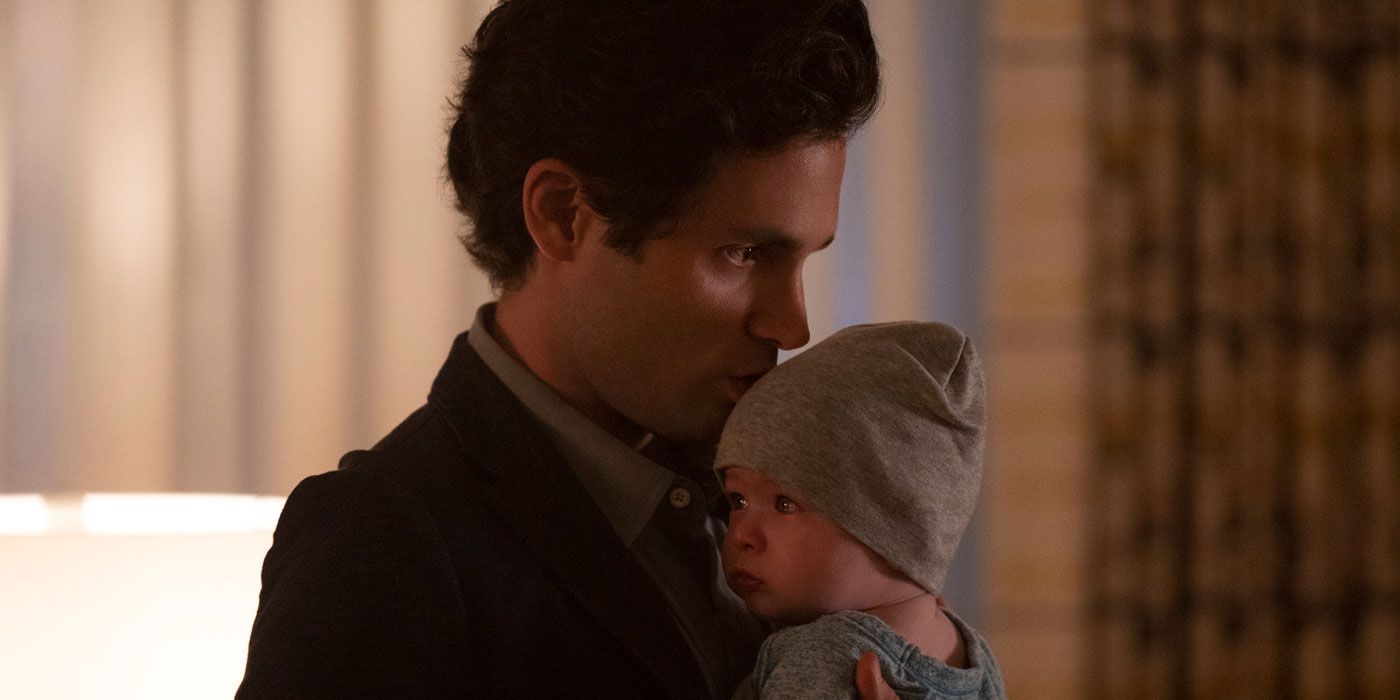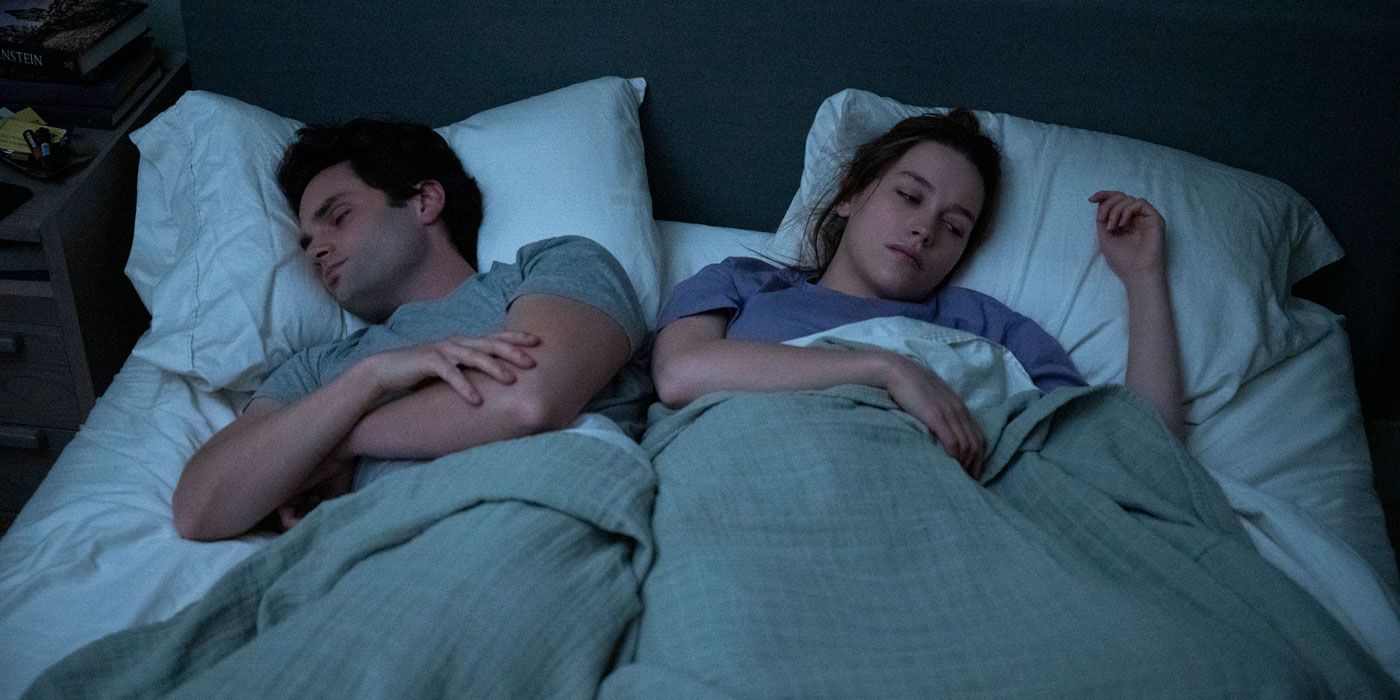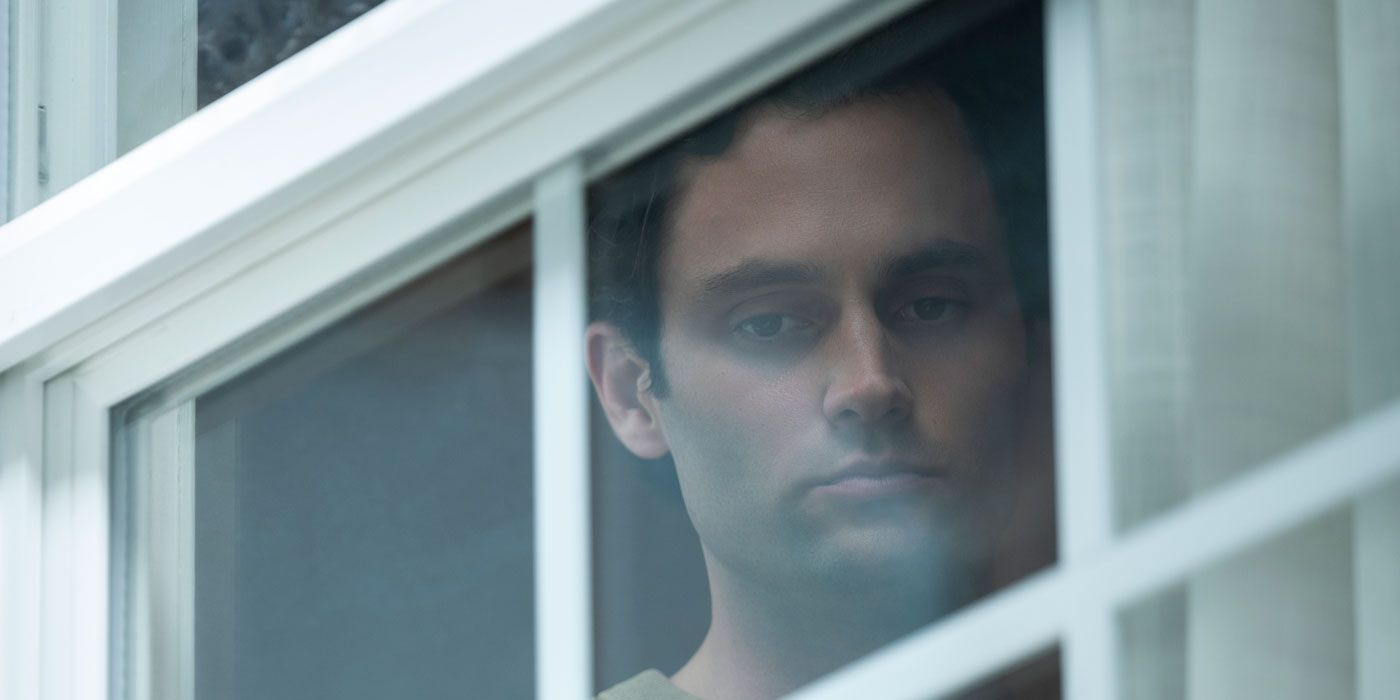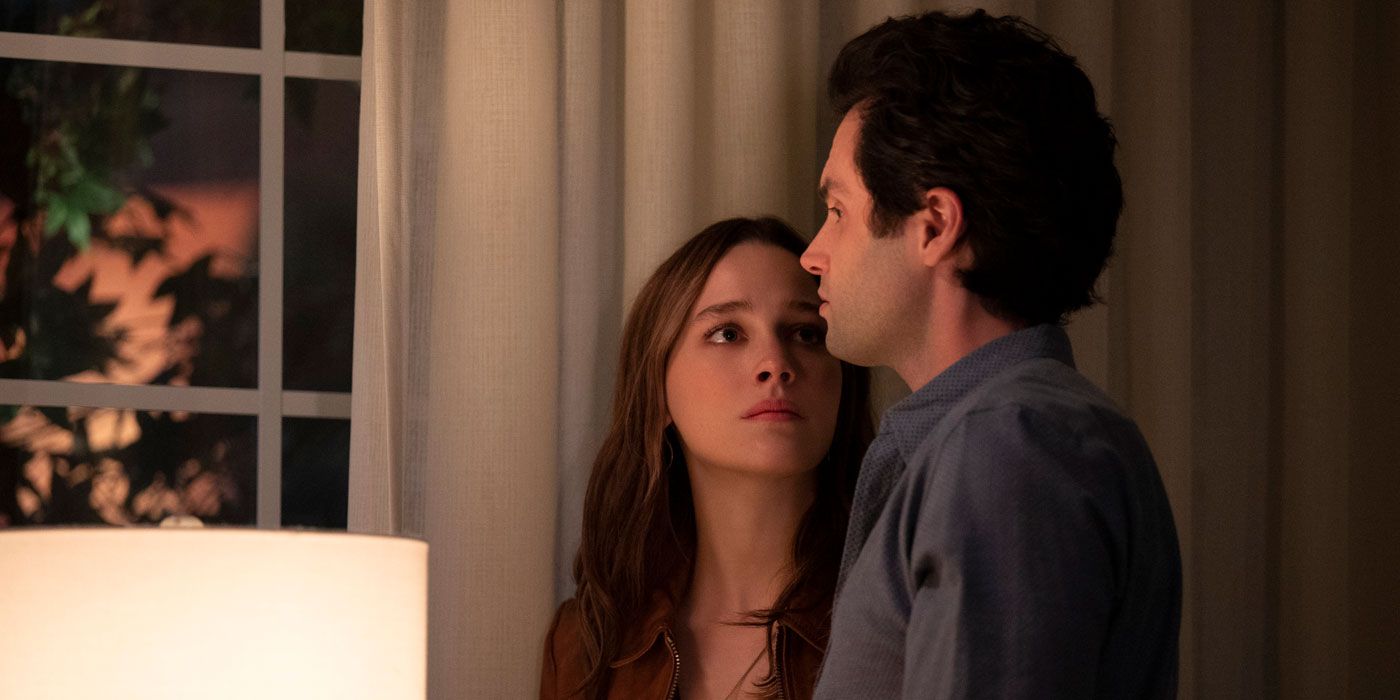[Editor's note: The following contains spoilers through the Season 3 finale of You, "What Is Love?"]
After three seasons of You, star Penn Badgley seems to have gotten pretty comfortable with getting under the skin of Joe, a humble book-lover who has a bad habit of getting obsessed with and/or murdering people. After Season 2 brought Joe from New York to Los Angeles, Season 3 features him relocating to a sunny Northern California suburb with new wife Love (Victoria Pedretti) and their baby Henry; while things look picture perfect, it doesn't take long before both Joe and Love's true natures emerge, causing lots of bloody problems for the young couple.
A lot happens for Joe in Season 3, and Badgley had plenty to say about the character's journey in this one-on-one interview with Collider. In addition to the big existential questions like "can Joe ever find happiness?", the star also talked about the changes to this season's voice-over, why Season 4 may take us on a very different journey, and whether Joe can really let Henry go.
Collider: To start, when you came into Season 3, what were you thinking about in terms of who Joe is at this time in his life?
PENN BADGLEY: I will say that honestly, as an actor ... As a person, I intellectualize plenty before and after, right? But really, as an actor during, I don't need to apply that same intellectual process because, first of all, when you play a character for this long, you just kind of know... It's very intuitive.
And then secondly, I think the truth is with Joe, as much as any character if not more, like, if I was to be thinking about where he's going and what he's doing, well it always involves the highest of stakes. Murder and deceit and betrayal. So if I was always thinking about that, he would be very one-note in a way. So I actually just let the spontaneity of the moment carry me and I just kind of respond to everything like he really believes what he's saying and doing and thinking.
The new thing was fatherhood, I guess. Because he's been in relationships plenty. Marriage is different, so I suppose it was fatherhood and marriage. Joe to me is a little bit like, he's a world within himself and then you just apply him to a new situation and then see how it responds, see how he responds. I don't know if that makes sense, but that's kind of how I think of it as an actor. I don't think to myself, like, "What does Joe think about marriage?" I'm just going to do Joe and then see what happens.
Yeah, that's fascinating. Do you have a sense of when you felt comfortable enough with the character to be able to have that approach?
BADGLEY: Probably by the second season, I guess. Yeah. The first season was the toughest because I'd never played somebody so terrible. I'd played people who were theoretically kind of similar, but let's be real, they weren't like this at all. The first season, I was always kind of checking in with people. I was like, "What are we doing? You know he kills her at the end." It was just a trip. And I think now it's like, yeah, he's very much like a second skin for me, particularly with the voiceovers.
Of course. One of the things I feel like was really fascinating is this season especially, you get, at the very least, modulations in who the You is in the voice-over. When it came to that shift, was that something you were conscious of?
BADGLEY: So they're kind of like two jobs. When I'm doing the voiceover, it's one thing. When I'm doing just on set, that's ... On set, unchanged. On set, just the same. The voiceover was really interesting because I had to really fine tune that arc. Because Joe talks a lot in his mind. A lot. Obviously. And sometimes it's fast. I often wonder to myself when I'm doing it, I'm like, "Are people going to understand? Are people going to really process all this information?" Sometimes it's so much, you know what I mean?
I mean first of all, that really is a device coming from the writers, so I think even once I understood, like, "Ah, they're shifting the you." It brought me to a deeper level of understanding of what that even means in the title of the show, like, who "you" is. Because I'm able to look at the script while I'm doing the voiceover, I'm almost just along for the ride as well. Because Joe's second nature at this point and I'm always portraying him anyway, I don't need to prepare. I just go in and I just live in those words as I'm reading them, so I actually often am kind of experiencing it much like the audience. I'm like, "Oh, that's crazy. Wow, this guy's super fucked up. Whoa. Whoa." It's like I run the lines and I say them and I'm like, "Whoa. All right, let's take that again." Again, yeah, I think it's that thing, that returning theme. When I'm doing him, when I'm being him, I don't actually think that much. I can't. It gets in the way.
Of course. And you were recording the narration first?
BADGLEY: Yeah. They're not as connected as you would think. It just happens very beautifully. Repeatedly. I record the voiceover most of the time before we've shot it. I don't think about it when I'm shooting it how I did it then. Very rarely. They're two separate things and then they just lay on top of each other and work and just going to keep going.
What's so interesting about Joe's relationship with Love is that from the end of Season 2, there was a sense of, well, "finally Joe has found someone he can be with." From your perspective, do you feel like that was the case? Or do you feel like we were always heading towards a tragic end for this relationship?
BADGLEY: Yeah. Penn, the person, not the actor, is like, "Yeah. Of course, Joe's going to die." The object of his interest is either going to get away or die. They're not going to stay together. Easy. End of discussion. But then of course, as an actor, I have to completely believe, moment to moment, what's happening. So it's, to me again, very spontaneous, and I find myself wanting them to stay together, I find myself wanting them to be apart when he wants them to be apart. You really just have to let yourself be spontaneous and be present. But then again, later when I think about it, I'm like, "He's going to kill her. Obviously. Obviously. We saw it all in the first season. There's going to be a lot of masturbation. There's going to be a lot of murder. No one's going to be happy except for the people who get away at the end."
In that case, do you feel like there's ever a scenario where Joe could find happiness? Or should we not even want that?
BADGLEY: So this is probably the most significant question the show will continue to answer until it's over. I think actually we've explored the whole ... I mean, I'm not saying we've done it to the point that it's clearly answered, but I think we've done what we can in terms of offering a deconstructive lens of masculinity and romantic tropes. We'll always be deepening on them, I'm not saying that it's done, but I'm saying a great bulk of our work is now out there and people have seen that. I think this question that you just asked is the question remaining. In the real world, so that we're in a real emotional universe and can relate to this happening, where does a person like Joe go? Where is justice for him and for us? Does that mean happiness? I mean, it's like, does a person like Joe deserve to die? Yes. But does anyone deserve to kill him? I really think this is this question.
And then it's this question that Greg [Berlanti] and Sera [Gamble] have posed to me, which I really love, is what does the world offer a man like Joe, currently? Not a just world that hopefully we'll achieve in the future, but the world we currently live in now with so many systemic injustices. How does it reward or punish a man like Joe? I think the thing that would make Joe most miserable is not... If he was tortured and killed by a woman, he would, in his mind, almost be vindicated. He'd be like, "I am the most persecuted man in all of history and I can be a martyr for love." That is kind of what he would think in his mind. And Beck even says this in the first season — she says all that. And it's why people repeatedly do not call the cops on him, as sort of absurd as that might be at times. But it's true. And so I think for the next season, my conversations with Sera are really, I think, the most exciting so far because I think we're really going to get into that. And the next season could be quite different. It really could be quite different.
In what way?
BADGLEY: Well, it might be ... I don't know, but I think it might be more about Joe's relationship with himself. Because this isn't really a show about a murderer, this is a show about ... I think it's taking the mistakes that we make in relationships to the extreme for the sake of a good story. Like, we really need to lay down our swords and stop being competitive in relationships, but that's very hard to do.
There's a choice made to give up Henry at the end, and for all intents and purposes, it looks like Henry could potentially have a really lovely life with his new family. Do you think Joe can stick to that? Do you think Joe can actually let him go?
BADGLEY: Yeah. I think so. I mean, I think again, trying to give some reality to Joe, he's really, really mentally ill. I don't know that he has the capacity to hold onto anyone for that long.
You Season 3 is streaming now on Netflix. A fourth season has been greenlit.




